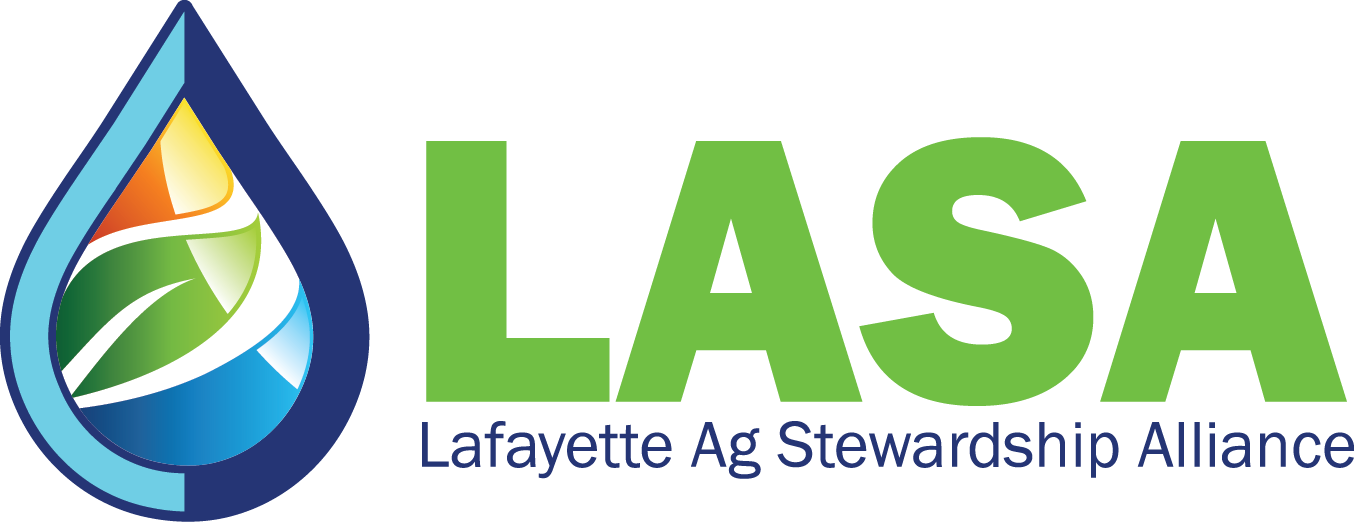By Mary Hookham For LASA
DARLINGTON, Wis. — For Gretchen Kamps, a beef farmer from Belmont, accountability stands out as an essential benefit for members of Lafayette Ag Stewardship Alliance.
“Farmers are really creative and ingenuitive people, so when somebody comes up with an idea, we can share that with others, which can really make a difference,” Kamps said.
Membership in LASA has allowed Kamps and her husband, Josh, to synchronize field work and animal care to create more harmony on their 250-head cow-calf operation. Conservation remains their top priority.
“Crops and animals can work really well together as long as you can get the nutrients on the fields at the right time and get the animals the right nutrients when they need them,” she said.
The Kamps are among two dozen crop, dairy, beef and hog farmers using innovative practices to protect the quality of water in Lafayette County through LASA. The farmer-led watershed conservation group, which was launched in 2017, works to empower its members to experiment with practices tailored to their individual farms.
Hog and crop farmer Mike Berget of Darlington is passionate about soil conservation. As a board member of LASA, he believes in the importance of preserving Wisconsin’s valuable soil for future generations.
“There is no cookie-cutter approach to conservation,” Berget said. “Everybody’s operation is different.”
Berget, along with his wife, Judy, and their four adult children, plant buffer strip cover crops to help retain that valuable topsoil. They also utilize strip-till and no-till management practices on much of their farm, something they’ve found to not only be beneficial for the soil but also for the bottom line.
“If we had to conventionally till all our ground, we would probably need three more employees and four more quad-track tractors,” Berget said.
On 300 acres of pastureland, the Kamps maintain their Angus herd with calves arriving in the spring and fall. Their 150 acres of crops include rye as a winter cover crop, and tillage is minimal. The farm is unique because the Kamps keep their cows in confinement during gestation and calving to more easily manage any issues that arise.
“This system has allowed us to take a few more risks with the bulls we use that we may not be so sure of on calving ease,” Gretchen said.
The Kamps have installed stream crossings in pastures, used perennial forage for soil stabilization and created a manure storage plan utilizing above-ground storage pits with roofs, safely storing manure until application conditions are best for spreading.
They continue to see improved soil quality with better water-holding capacity because of these techniques, she said. The farm also has increased resilience in extreme weather events.
The Berget family appreciates the research being done through the University of Wisconsin System and the demonstrations provided at annual field days. It’s not only a great resource but also a chance for farmers to get back in touch with UW-Extension agents, Mike Berget said.
“Farmers did themselves a disservice by getting away from the assistance of their Extension offices,” Berget said. “And we hope that what we’re doing is helping preserve the land and water, but this research verifies it.”
